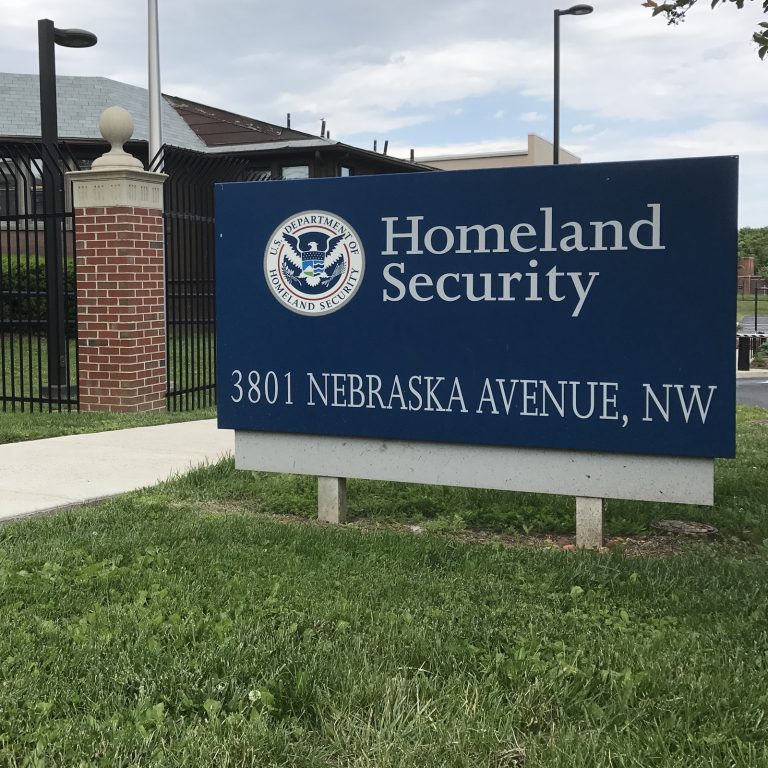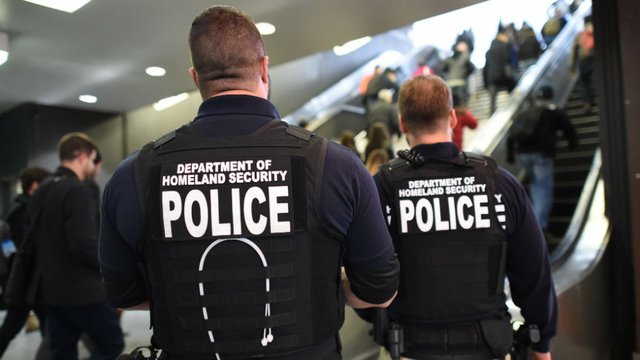Latest news about Bitcoin and all cryptocurrencies. Your daily crypto news habit.

The U.S. Department of Homeland Security (DHS) has published its 2019 fiscal year pre-solicitation document. Throughout the 27-page letter, the organization explains that it wants to dedicate resources toward creating blockchain forensic applications that can analyze privacy-centric digital asset movements. Prior efforts have addressed bitcoin analytics and now the agency wants surveillance tools for cryptocurrencies like monero and zcash.
Also read: New Software Copernicus Has Mined Its First Bitcoin Cash Block
DHS: ‘US Law Enforcement Agencies Need Blockchain Forensic Tools for Privacy Coins’
 The DHS has submitted a proposal for its Small Business Innovation Research program, which also incorporates its Science and Technology platform. The document covers subjects like cybersecurity, communications, the Internet of Things (IoT), sensors, and blockchain technology. The DHS agency explains that Distributed Ledger Technology (DLT) will likely be leveraged for commercial and government applications in the future, but some of these blockchains allow for unfavorable methods of anonymity and transaction obfuscation.
The DHS has submitted a proposal for its Small Business Innovation Research program, which also incorporates its Science and Technology platform. The document covers subjects like cybersecurity, communications, the Internet of Things (IoT), sensors, and blockchain technology. The DHS agency explains that Distributed Ledger Technology (DLT) will likely be leveraged for commercial and government applications in the future, but some of these blockchains allow for unfavorable methods of anonymity and transaction obfuscation.
“This proposal seeks applications of blockchain forensic analytics for newer cryptocurrencies, such as Zcash and Monero,” the solicitation letter reads.
The DHS document continues:
Ongoing research within the field also contributes to new technological implementations and techniques that continue to multiply the specific types of consensus, privacy, security, and proof mechanisms.
Tackling Cryptocurrency Anonymity in Three Phases
The agency further details that while privacy features are desirable, there is an interest for some individuals and organizations to use these funds for actions of an “illegal nature.” These illicit acts bolster the need for forensic analysis on blockchain transactions that exercise anonymity tactics. The DHS proposal explains that the agency wants to mitigate these issues by following three phases. The first phase is for researchers and programmers to design a blockchain analysis ecosystem for law enforcement agencies, or to modify an existing DLT analysis tool for this purpose. The new tool must be able to provide surveillance architecture specifically for privacy currencies such as monero and zcash.
 In 2016, it was revealed that Homeland Security started a taskforce in order to identify unlicensed bitcoin exchangers.
In 2016, it was revealed that Homeland Security started a taskforce in order to identify unlicensed bitcoin exchangers.
The second phase is to develop a blockchain monitoring prototype that can be demonstrated and that involves the analysis of “suspicious transactions without external data, with external data, and on another blockchain platform.” Lastly, the third phase will include the rollout of commercial and government-grade blockchain surveillance applications.
“Blockchain forensic analytics for the homeland security enterprise can help the DHS law enforcement and security operations across components as well as state and local law enforcement operations,” states page 21 of the DHS solicitation letter. “Private financial institutions can likewise benefit from such capabilities in enforcing “know your customer” and anti-money laundering compliance.”
The Importance of Blockchain Transaction R&D
The DHS has been investigating blockchain and cryptocurrency activities for quite some time as this is not the first instance of the agency looking to stop anonymous cryptocurrency transactions. Back in April of 2016, the DHS created a taskforce in order to identify unlicensed bitcoin exchangers. Moreover, the DHS and a myriad of other U.S.-based three letter agencies have been arresting money launderers using cryptocurrencies. Even those selling digital assets using peer-to-peer marketplaces like Localbitcoins have been apprehended by the department. The group has also funded many blockchain startups with millions of dollars for research and development (R&D) over the years.
The solicitation letter emphasized that the current drafted proposal is not set in stone and will likely be officially published on Dec. 19. The blockchain and DLT section of the proposal details that law enforcement needs to speed up when it comes to forensic analysis and blockchain transaction R&D. “This analysis can be approached in any number of ways and may consider different data situation use cases depending on whether additional data from offchain sources are available,” the letter’s cryptocurrency section concludes.
What do you think about the DHS solicitation documentation asking for blockchain surveillance tools for cryptocurrencies like monero and zcash? Let us know what you think about this subject in the comments section below.
Images via Shutterstock, DHS, and Pixabay.
Want to create your own secure cold storage paper wallet? Check our tools section.
Disclaimer
The views and opinions expressed in this article are solely those of the authors and do not reflect the views of Bitcoin Insider. Every investment and trading move involves risk - this is especially true for cryptocurrencies given their volatility. We strongly advise our readers to conduct their own research when making a decision.
